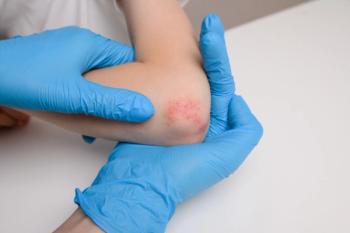
Integrating Pharmacists Into a Collaborative Care Model Within Dermatology
Barriers that continue to exist include the challenges of recruiting exceptional pharmacists and the changing landscape of therapies for dermatologic conditions.
Pharmacists who successfully integrate into collaborating roles with dermatologists can help increase patients access to specialty medications and improve outcomes, according to research presented at the 2023 American Society of Health-System Pharmacists Summer Meetings and Exhibition, held June 10 to 14 in Baltimore, Maryland.1
Investigators conducted an assessment to evaluate overall service performance of a medication management clinic model in dermatology. Over the course of fiscal year 2022, researchers planned to integrate 5 pharmacists into the service line at Yale New Haven Health. In order to determine which clinicians would be targeted for expansion, a review of dermatologist patient volume and prescribing practices was conducted.
Due to the complexity of medication management, clinicians who had a high volume of patients on biologic and specialty medications were prioritized. Each pharmacist was targeted to build a panel of 300 patients by the end of the study.
Service performance outcomes that were evaluated included number of clinicians supported in dermatology, patient referrals, clinical continuity, and adjudicated and dispensed prescriptions.
Investigators found that the target of patient referrals was exceeded by 35.7%, with a total of 1217 at the end of the fiscal year. Additionally, clinical continuity was exceeded by 123.2% with a total of 1558, and the target number of adjudicated and dispensed prescriptions was exceeded by 12.6% with a total of 1267.
In total, the medication management clinic at Yale New Haven Health expanded by the end of the fiscal year to include 6 pharmacists and 8 dermatologists.
“With the support of the physician champion and well-defined roles and responsibilities, the expansion into dermatology has been successful,” the authors wrote. “All targeted outcomes were exceeded, with high performance linked to increased patient access to specialty medications and improved outcomes.”
“Barriers that continue to exist are delays with insurance authorization, the challenges of recruiting exceptional pharmacists, and the ever-changing landscape of therapies to treat dermatologic conditions,” the researchers concluded.
Reference
1. Stroedecke N. Post-implementation assessment of an integrated pharmacist collaborative care model in dermatology. Presented at: American Society of Health-System Pharmacists Summer Meetings and Exhibition; June 10-14, 2023; Baltimore, MD. Poster 10-T.
Newsletter
Pharmacy practice is always changing. Stay ahead of the curve with the Drug Topics newsletter and get the latest drug information, industry trends, and patient care tips.























